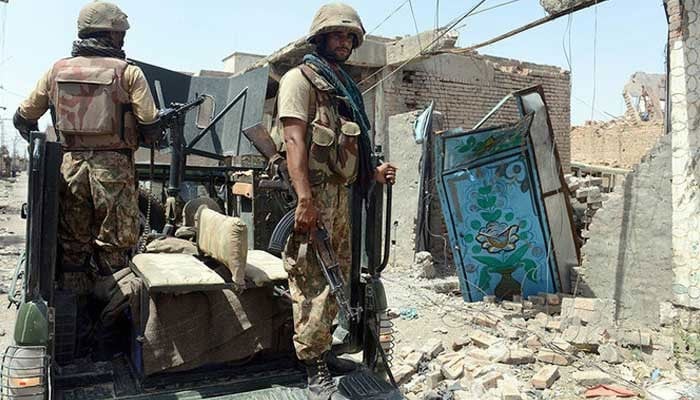After the attack
August 21 is marked as the International Day of Remembrance of and Tribute to the Victims of Terrorism
August 21 is marked as the International Day of Remembrance of and Tribute to the Victims of Terrorism. The day is meant to honour and support the victims and survivors of terrorism and to promote and protect the full enjoyment of their human rights and fundamental freedoms. The UN acknowledges that victims and survivors of terrorism often feel forgotten and neglected once the immediate aftermath of a terror attack begins to fade away and that most countries do not have the resources to adequately support victims and survivors. This is an extremely pertinent point when it comes to a country like Pakistan, where there are many victims of terrorism in Pakistan and the population of entire areas can be counted among the survivors. Sadly, this is a list that only seems to be growing by the day as the country battles a resurgence of terror from across the western border with Afghanistan. Much of the discussion surrounding this issue revolves around coming up with the right strategy to avoid further terror attacks and eradicate terrorism and extremism from society. These are undoubtedly important discussions to have. And yet, those who have been injured in terror attacks, the families, colleagues and friends of those martyred and the residual trauma that those who have witnessed attacks have to live with are not brought up as frequently as they should be.
What happens to the victims and survivors of terror once the attack is over? How do they get on with their lives? What policies and systems are in place to support them? How are those families who have lost their breadwinners or now have a member who requires long-term health assistance coping amidst record inflation? These are the questions that need to be asked on a day like this. Judging by the strained and threadbare health system the country currently has, one can arguably guess that many victims and survivors do not get the help they need. That being said, it was incredibly heartening to see a survivor of the APS attack in Ahmad Nawaz become president of the Oxford Union back in 2022. One hopes that all the other survivors of that tragedy were able to go on and live fulfilling lives and Ahmad’s tale is perhaps a sign that at least something is being done right. Stories like this show more than anything else the country’s resilience against terror and its determination to not be shaken off course.
While it may not appear so, ensuring that victims of terror and their loved ones get adequate support and can resume a normal life is an important part of defeating the overall terror threat. Failure to provide this support only amplifies the damage and instability caused by terrorism beyond the immediate attack. In Pakistan’s case, this means that entire communities could be left behind and struggle to recover from the ravages of terrorism on their own. With the country having experienced a 67 per cent year-on-year increase in terror attacks during the first 11 months of 2023 and the resurgence seemingly continuing into this year, addressing the needs of victims and survivors is more urgent than ever.
-
 All You Need To Know Guide To Rosacea
All You Need To Know Guide To Rosacea -
 Princess Diana's Brother 'handed Over' Althorp House To Marion And Her Family
Princess Diana's Brother 'handed Over' Althorp House To Marion And Her Family -
 Trump Mobile T1 Phone Resurfaces With New Specs, Higher Price
Trump Mobile T1 Phone Resurfaces With New Specs, Higher Price -
 Factory Explosion In North China Leaves Eight Dead
Factory Explosion In North China Leaves Eight Dead -
 Blac Chyna Opens Up About Her Kids: ‘Disturb Their Inner Child'
Blac Chyna Opens Up About Her Kids: ‘Disturb Their Inner Child' -
 Winter Olympics 2026: Milan Protestors Rally Against The Games As Environmentally, Economically ‘unsustainable’
Winter Olympics 2026: Milan Protestors Rally Against The Games As Environmentally, Economically ‘unsustainable’ -
 How Long Is The Super Bowl? Average Game Time And Halftime Show Explained
How Long Is The Super Bowl? Average Game Time And Halftime Show Explained -
 Natasha Bure Makes Stunning Confession About Her Marriage To Bradley Steven Perry
Natasha Bure Makes Stunning Confession About Her Marriage To Bradley Steven Perry -
 ChatGPT Caricature Prompts Are Going Viral. Here’s List You Must Try
ChatGPT Caricature Prompts Are Going Viral. Here’s List You Must Try -
 James Pearce Jr. Arrested In Florida After Alleged Domestic Dispute, Falcons Respond
James Pearce Jr. Arrested In Florida After Alleged Domestic Dispute, Falcons Respond -
 Cavaliers Vs Kings: James Harden Shines Late In Cleveland Debut Win
Cavaliers Vs Kings: James Harden Shines Late In Cleveland Debut Win -
 2026 Winter Olympics Snowboarding: Su Yiming Wins Bronze And Completes Medal Set
2026 Winter Olympics Snowboarding: Su Yiming Wins Bronze And Completes Medal Set -
 Trump Hosts Honduran President Nasry Asfura At Mar-a-Lago To Discuss Trade, Security
Trump Hosts Honduran President Nasry Asfura At Mar-a-Lago To Discuss Trade, Security -
 Cuba-Canada Travel Advisory Raises Concerns As Visitor Numbers Decline
Cuba-Canada Travel Advisory Raises Concerns As Visitor Numbers Decline -
 Anthropic Buys 'Super Bowl' Ads To Slam OpenAI’s ChatGPT Ad Strategy
Anthropic Buys 'Super Bowl' Ads To Slam OpenAI’s ChatGPT Ad Strategy -
 Prevent Cancer With These Simple Lifestyle Changes
Prevent Cancer With These Simple Lifestyle Changes




